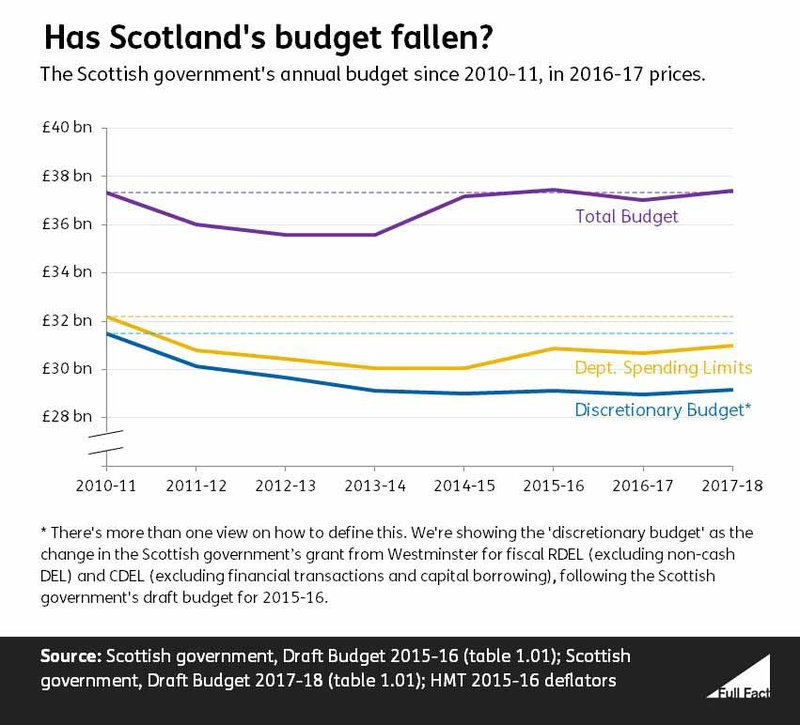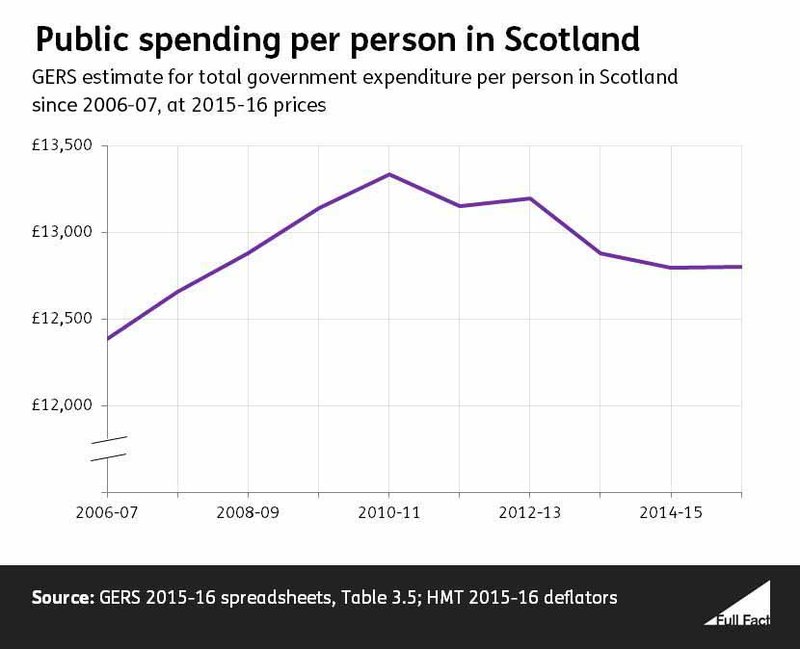David Mundell, John Swinney and the audience member are talking past each other, partly because there’s more than one reasonable definition of ‘the Scottish government budget’ or ‘our budget’.
It fell on any measure between 2010-11 and 2013-14. Since then it’s either flatlined, risen slightly, or returned to roughly the same value—it depends on what you include.
Really there are three questions that need answering here. First, what’s happened to the total budget for the Scottish government? Second, what’s happened to the bits of the budget that the Scottish government actually has control over? Third, how much public money gets spent on Scotland overall?
The Scottish government’s overall budget is roughly the same now as it was in 2010-11, when the Coalition government took power in Westminster.
The Scottish government’s total budget fell after 2010-11.
Its value rose again between 2013-14 and 2014-15. Since then the total annual budget has been worth roughly the same as it was in 2010-11, after accounting for inflation.
But the Scottish government doesn’t have direct control over where all this money is spent. It makes direct choices about the money that’s spent by government departments (what’s called ‘DEL’), but there are other bits of spending that it doesn’t have the same control over, like welfare payments and pension schemes (called ‘AME’).
The Scottish government’s ‘discretionary budget’—the bit it actually has control over—is smaller than it was in 2010/11.
How much smaller you say it is depends on what you include in the ‘discretionary’ budget.
The Scottish government says that decisions made in Westminster have cut its discretionary spending budget by 7.4% between 2010-11 and 2017-18.
The Fraser of Allander Institute, an economic think tank based in the University of Strathclyde, counts the ‘discretionary budget’ differently. It says that the Scottish government’s discretionary budget from Westminster has fallen by about 5% over the same period.
That’s because the institute also includes the revenue from non-domestic rates—a kind of tax on businesses—and money that’s been given to it by Westminster to lend to Scottish businesses (which will eventually have to be paid back).
That’s not quite the end of the story. Constitutional reforms have given the Scottish government new powers to borrow money. Once this and some financial adjustments have been taken into account, the Scottish government says it saw a 5.8% reduction in its spending power from 2010-11 to 2017-18. The Fraser of Allander Institute prefers a figure of 3.8% on that basis.
The Scottish government’s budget doesn’t include all the money that’s notionally spent on Scottish people.
The government’s estimate for all public expenditure in Scotland includes much more than the Scottish government’s budget. It also counts things like Scotland’s notional share of UK defence spending, or interest payments on the national debt.
Overall, the government estimates that the real value of public spending per person in Scotland was about 4% lower in 2015-16 than in 2010-11.

